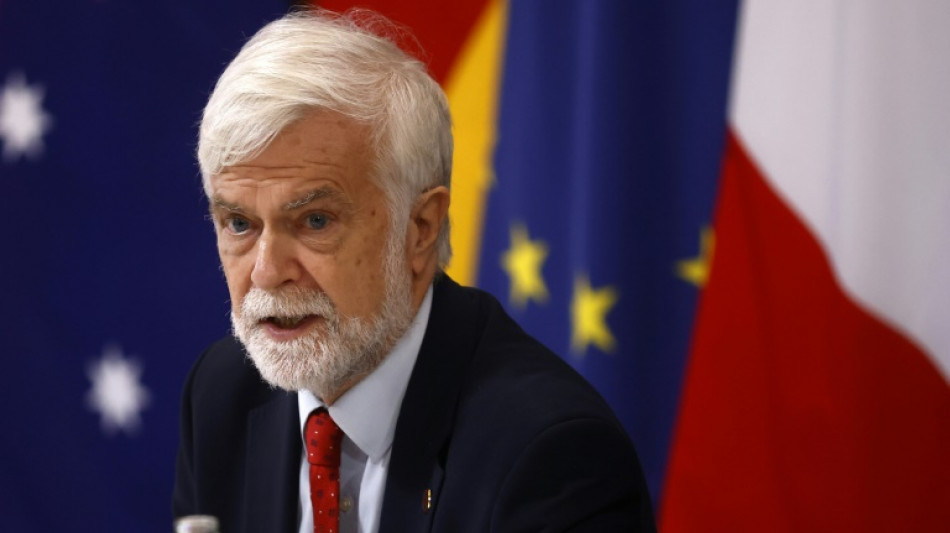
-
 Zuckerberg denies Meta bought rivals to conquer them
Zuckerberg denies Meta bought rivals to conquer them
-
Starc stars as Delhi beat Rajasthan in Super Over

-
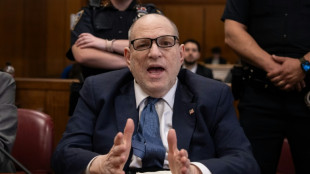 Weinstein asks to sleep in hospital, citing prison 'mistreatment'
Weinstein asks to sleep in hospital, citing prison 'mistreatment'
-
Amorim asks McIlroy to bring Masters magic to Man Utd

-
 Ruud keeps Barcelona Open defence on course
Ruud keeps Barcelona Open defence on course
-
Trump tariffs could put US Fed in a bind, Powell warns

-
 CONCACAF chief rejects 64-team World Cup plan for 2030
CONCACAF chief rejects 64-team World Cup plan for 2030
-
Putin praises Musk, compares him to Soviet space hero
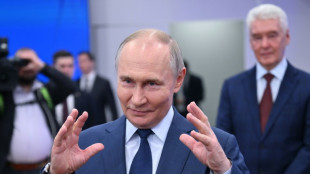
-
 Son to miss Spurs' Europa League trip to Frankfurt
Son to miss Spurs' Europa League trip to Frankfurt
-
US senator in El Salvador seeking release of wrongly deported migrant

-
 Trump tariffs could put the US Fed in a bind, Powell warns
Trump tariffs could put the US Fed in a bind, Powell warns
-
US judge says 'probable cause' to hold Trump admin in contempt

-
 India opposition slams graft charges against Gandhis
India opposition slams graft charges against Gandhis
-
Nate Bargatze to host Emmys: organizers

-
 US Fed Chair warns of 'tension' between employment, inflation goals
US Fed Chair warns of 'tension' between employment, inflation goals
-
Trump touts trade talks, China calls out tariff 'blackmail'

-
 US judge says 'probable cause' to hold govt in contempt over deportations
US judge says 'probable cause' to hold govt in contempt over deportations
-
US eliminates unit countering foreign disinformation

-
 Germany sees 'worrying' record dry spell in early 2025
Germany sees 'worrying' record dry spell in early 2025
-
Israel says 30 percent of Gaza turned into buffer zone

-
 TikTok tests letting users add informative 'Footnotes'
TikTok tests letting users add informative 'Footnotes'
-
Global uncertainty will 'certainly' hit growth: World Bank president

-
 EU lists seven 'safe' countries of origin, tightening asylum rules
EU lists seven 'safe' countries of origin, tightening asylum rules
-
Chelsea fans must 'trust' the process despite blip, says Maresca

-
 Rebel rival government in Sudan 'not the answer': UK
Rebel rival government in Sudan 'not the answer': UK
-
Prague zoo breeds near-extinct Brazilian mergansers

-
 Macron to meet Rubio, Witkoff amid transatlantic tensions
Macron to meet Rubio, Witkoff amid transatlantic tensions
-
WTO chief says 'very concerned' as tariffs cut into global trade

-
 Sports bodies have 'no excuses' on trans rules after court ruling: campaigners
Sports bodies have 'no excuses' on trans rules after court ruling: campaigners
-
Zverev joins Shelton in Munich ATP quarters

-
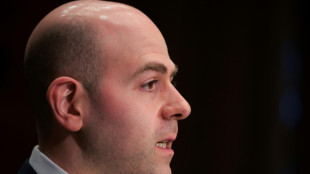 The Trump adviser who wants to rewrite the global financial system
The Trump adviser who wants to rewrite the global financial system
-
US senator travels to El Salvador over wrongly deported migrant

-
 UN watchdog chief says Iran 'not far' from nuclear bomb
UN watchdog chief says Iran 'not far' from nuclear bomb
-
Trump says 'joke' Harvard should be stripped of funds

-
 Macron vows punishment for French prison attackers
Macron vows punishment for French prison attackers
-
Canada central bank holds interest rate steady amid tariffs chaos

-
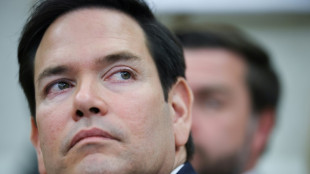 Rubio headed to Paris for Ukraine war talks
Rubio headed to Paris for Ukraine war talks
-
Australian PM vows not to bow to Trump on national interest

-
 New attacks target France prison guard cars, home
New attacks target France prison guard cars, home
-
Global trade uncertainty could have 'severe negative consequences': WTO chief
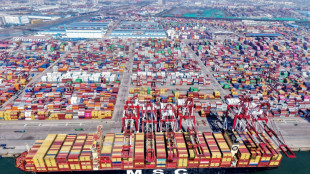
-
 Google facing £5 bn UK lawsuit over ad searches: firms
Google facing £5 bn UK lawsuit over ad searches: firms
-
Onana to return in goal for Man Utd against Lyon: Amorim

-
 Tiktok bans user behind Gisele Pelicot 'starter kit' meme
Tiktok bans user behind Gisele Pelicot 'starter kit' meme
-
'Put it on': Dutch drive for bike helmets
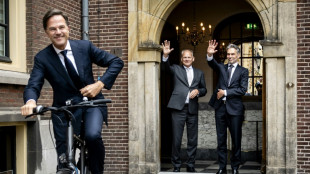
-
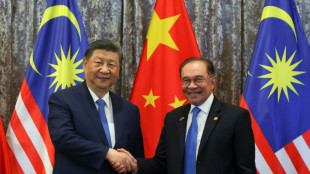 China's Xi meets Malaysian leaders, vows to 'safeguard' Asia allies
China's Xi meets Malaysian leaders, vows to 'safeguard' Asia allies
-
France urges release of jailed Russian journalists who covered Navalny

-
 Gabon striker Boupendza dies after 11th floor fall
Gabon striker Boupendza dies after 11th floor fall
-
UK top court rules definition of 'woman' based on sex at birth

-
 PSG keep Champions League bid alive, despite old ghosts reappearing
PSG keep Champions League bid alive, despite old ghosts reappearing
-
Stocks retreat as US hits Nvidia chip export to China


'We are not in crisis': chair of IPCC climate body to AFP
Jim Skea insists the IPCC, the UN climate panel he chairs, is not in crisis and remains relevant despite criticism it is too slow in publishing its landmark scientific reports on climate change.
In an interview with AFP in Paris, the British sustainable energy professor addressed divisions within the IPCC, the US retreat on climate cooperation, and record-breaking global temperatures.
A: "No, I don't think the IPCC is in crisis. We will resolve this issue about the timeline. I mean, we had a lot of big successes in Hangzhou... So IPCC is moving forward.
"On the timeline issue overall, there were two options that are basically on the floor there. One for a timeline that is aligned with the second global stocktake under the Paris Agreement (due in 2028) and another one which is slower.
"And for the countries that are proposing the slower timeline, there are another set of considerations. It's about the time that's available for countries to review the draft reports of IPCC and it's about the time that's available for people from developing countries to produce literature.
"So we need to get to the issue at the next meeting of IPCC, which should take place in the last quarter of this year. And I'm optimistic we will get a solution there and move forward."
A: "We don't normally comment on who's at a particular meeting until the reports come out. But, you know, it's been widely reported that the US didn't register for, or participate in, the meeting in Hangzhou, and that is indeed the case.
"At every meeting we have 60 or 70 countries or members of IPCC that don't turn up for the meeting, don't register. The US was one of these at this meeting, and it was a business as usual meeting. We got the job done. We got the outlines of the reports agreed."
A: "It's manifestly relevant. The 1.5 (degrees Celsius) report in the last cycle just had an absolutely huge impact, globally, in terms of negotiations. And if you go along to every Conference of the Parties, you will find every delegation standing up and saying, we have to rely on the science and refer back to IPCC reports.
"So the absolute evidence there is that IPCC continues to be relevant. What we are not is a 24/7 news organisation because of these five to seven year cycles. We have a very elaborate process of review. It takes time to go through them.
"But when we produce our reports, they have the stamp of authority of the scientists and consensus among governments, and that makes them very powerful. And I think if we compromise our procedures, we would lose that authority."
A: "There's a lot of intense scientific work going on at the moment to try and understand, precisely, what's happened over the last two to three years, and what explains things.
"The understanding I have, from talking to scientists -- and just to say, I am not a physical climate scientist myself -- my understanding is that we are at the boundary of exceptional circumstances for the global indicators. But for particular regions and for example, for ecosystems, we are also well beyond the boundaries of the expected range.
"So there's a lot of work going on to try and understand that at the moment... We hope there will be enough literature to provide a better explanation when IPCC next reports, probably 2028 for the Working Group (1) Physical Science report."
M.Vogt--VB


